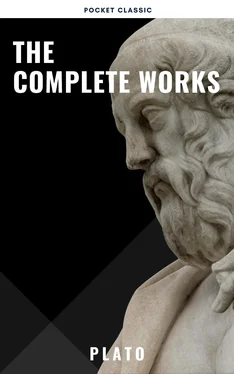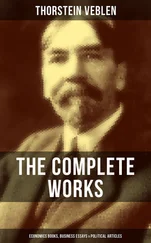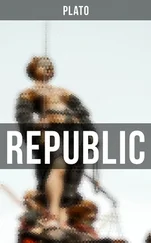That must be admitted.
And the courageous man has no base fear or base confidence?
True, he replied.
And if not base, then honourable?
He admitted this.
And if honourable, then good?
Yes.
But the fear and confidence of the coward or foolhardy or madman, on the contrary, are base?
He assented.
And these base fears and confidences originate in ignorance and uninstructedness?
True, he said.
Then as to the motive from which the cowards act, do you call it cowardice or courage?
I should say cowardice, he replied.
And have they not been shown to be cowards through their ignorance of dangers?
Assuredly, he said.
And because of that ignorance they are cowards?
He assented.
And the reason why they are cowards is admitted by you to be cowardice?
He again assented.
Then the ignorance of what is and is not dangerous is cowardice?
He nodded assent.
But surely courage, I said, is opposed to cowardice?
Yes.
Then the wisdom which knows what are and are not dangers is opposed to the ignorance of them?
To that again he nodded assent.
And the ignorance of them is cowardice?
To that he very reluctantly nodded assent.
And the knowledge of that which is and is not dangerous is courage, and is opposed to the ignorance of these things?
At this point he would no longer nod assent, but was silent.
And why, I said, do you neither assent nor dissent, Protagoras?
Finish the argument by yourself, he said.
I only want to ask one more question, I said. I want to know whether you still think that there are men who are most ignorant and yet most courageous?
You seem to have a great ambition to make me answer, Socrates, and therefore I will gratify you, and say, that this appears to me to be impossible consistently with the argument.
My only object, I said, in continuing the discussion, has been the desire to ascertain the nature and relations of virtue; for if this were clear, I am very sure that the other controversy which has been carried on at great length by both of us—you affirming and I denying that virtue can be taught—would also become clear. The result of our discussion appears to me to be singular. For if the argument had a human voice, that voice would be heard laughing at us and saying: ‘Protagoras and Socrates, you are strange beings; there are you, Socrates, who were saying that virtue cannot be taught, contradicting yourself now by your attempt to prove that all things are knowledge, including justice, and temperance, and courage,— which tends to show that virtue can certainly be taught; for if virtue were other than knowledge, as Protagoras attempted to prove, then clearly virtue cannot be taught; but if virtue is entirely knowledge, as you are seeking to show, then I cannot but suppose that virtue is capable of being taught. Protagoras, on the other hand, who started by saying that it might be taught, is now eager to prove it to be anything rather than knowledge; and if this is true, it must be quite incapable of being taught.’ Now I, Protagoras, perceiving this terrible confusion of our ideas, have a great desire that they should be cleared up. And I should like to carry on the discussion until we ascertain what virtue is, whether capable of being taught or not, lest haply Epimetheus should trip us up and deceive us in the argument, as he forgot us in the story; I prefer your Prometheus to your Epimetheus, for of him I make use, whenever I am busy about these questions, in Promethean care of my own life. And if you have no objection, as I said at first, I should like to have your help in the enquiry.
Protagoras replied: Socrates, I am not of a base nature, and I am the last man in the world to be envious. I cannot but applaud your energy and your conduct of an argument. As I have often said, I admire you above all men whom I know, and far above all men of your age; and I believe that you will become very eminent in philosophy. Let us come back to the subject at some future time; at present we had better turn to something else.
By all means, I said, if that is your wish; for I too ought long since to have kept the engagement of which I spoke before, and only tarried because I could not refuse the request of the noble Callias. So the conversation ended, and we went our way.
PERSONS OF THE DIALOGUE:Meno, Socrates, A Slave of Meno (Boy), Anytus.
MENO: Can you tell me, Socrates, whether virtue is acquired by teaching or by practice; or if neither by teaching nor by practice, then whether it comes to man by nature, or in what other way?
SOCRATES: O Meno, there was a time when the Thessalians were famous among the other Hellenes only for their riches and their riding; but now, if I am not mistaken, they are equally famous for their wisdom, especially at Larisa, which is the native city of your friend Aristippus. And this is Gorgias’ doing; for when he came there, the flower of the Aleuadae, among them your admirer Aristippus, and the other chiefs of the Thessalians, fell in love with his wisdom. And he has taught you the habit of answering questions in a grand and bold style, which becomes those who know, and is the style in which he himself answers all comers; and any Hellene who likes may ask him anything. How different is our lot! my dear Meno. Here at Athens there is a dearth of the commodity, and all wisdom seems to have emigrated from us to you. I am certain that if you were to ask any Athenian whether virtue was natural or acquired, he would laugh in your face, and say: ‘Stranger, you have far too good an opinion of me, if you think that I can answer your question. For I literally do not know what virtue is, and much less whether it is acquired by teaching or not.’ And I myself, Meno, living as I do in this region of poverty, am as poor as the rest of the world; and I confess with shame that I know literally nothing about virtue; and when I do not know the ‘quid’ of anything how can I know the ‘quale’? How, if I knew nothing at all of Meno, could I tell if he was fair, or the opposite of fair; rich and noble, or the reverse of rich and noble? Do you think that I could?
MENO: No, indeed. But are you in earnest, Socrates, in saying that you do not know what virtue is? And am I to carry back this report of you to Thessaly?
SOCRATES: Not only that, my dear boy, but you may say further that I have never known of any one else who did, in my judgment.
MENO: Then you have never met Gorgias when he was at Athens?
SOCRATES: Yes, I have.
MENO: And did you not think that he knew?
SOCRATES: I have not a good memory, Meno, and therefore I cannot now tell what I thought of him at the time. And I dare say that he did know, and that you know what he said: please, therefore, to remind me of what he said; or, if you would rather, tell me your own view; for I suspect that you and he think much alike.
MENO: Very true.
SOCRATES: Then as he is not here, never mind him, and do you tell me: By the gods, Meno, be generous, and tell me what you say that virtue is; for I shall be truly delighted to find that I have been mistaken, and that you and Gorgias do really have this knowledge; although I have been just saying that I have never found anybody who had.
MENO: There will be no difficulty, Socrates, in answering your question. Let us take first the virtue of a man—he should know how to administer the state, and in the administration of it to benefit his friends and harm his enemies; and he must also be careful not to suffer harm himself. A woman’s virtue, if you wish to know about that, may also be easily described: her duty is to order her house, and keep what is indoors, and obey her husband. Every age, every condition of life, young or old, male or female, bond or free, has a different virtue: there are virtues numberless, and no lack of definitions of them; for virtue is relative to the actions and ages of each of us in all that we do. And the same may be said of vice, Socrates (Compare Arist. Pol.).
Читать дальше












